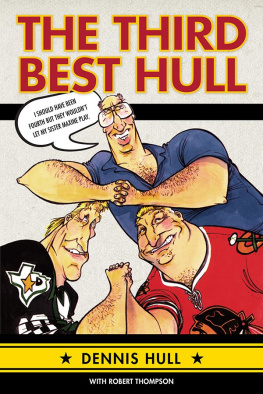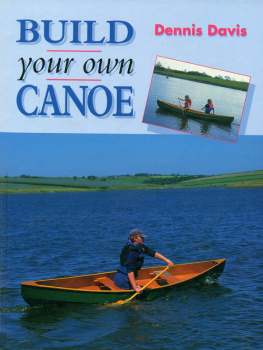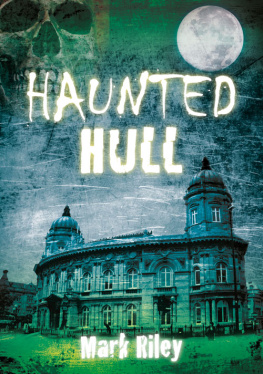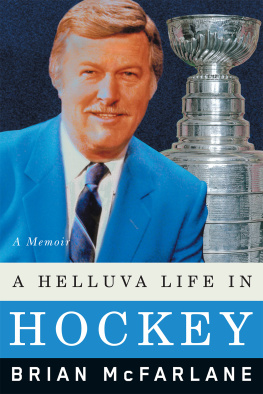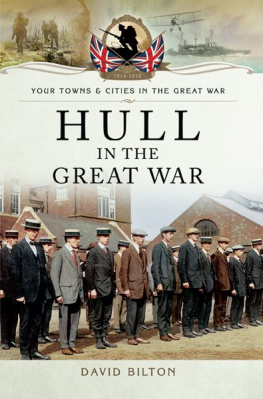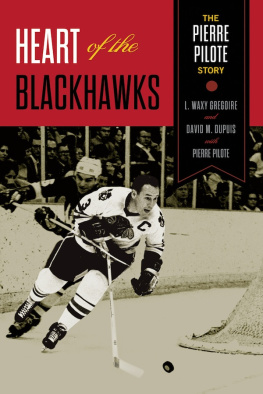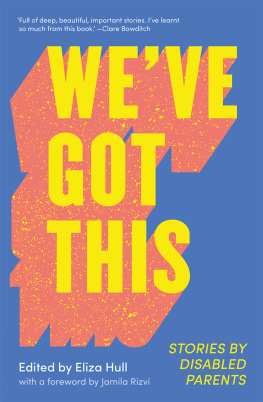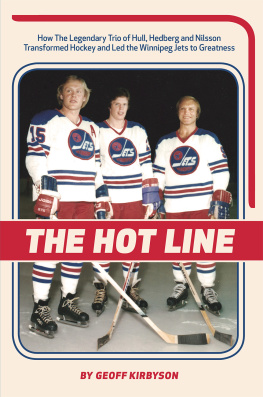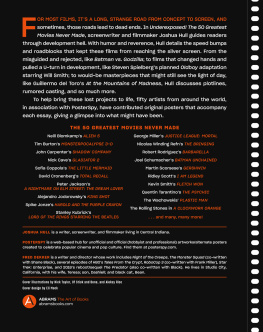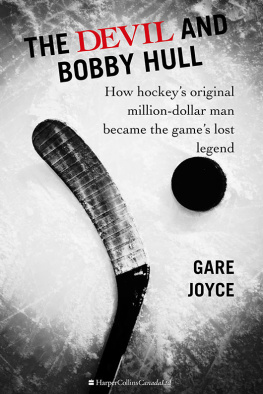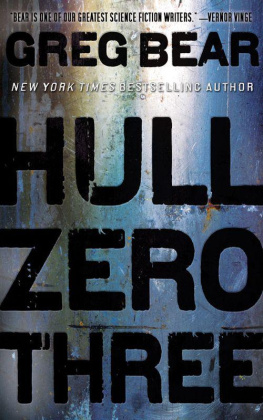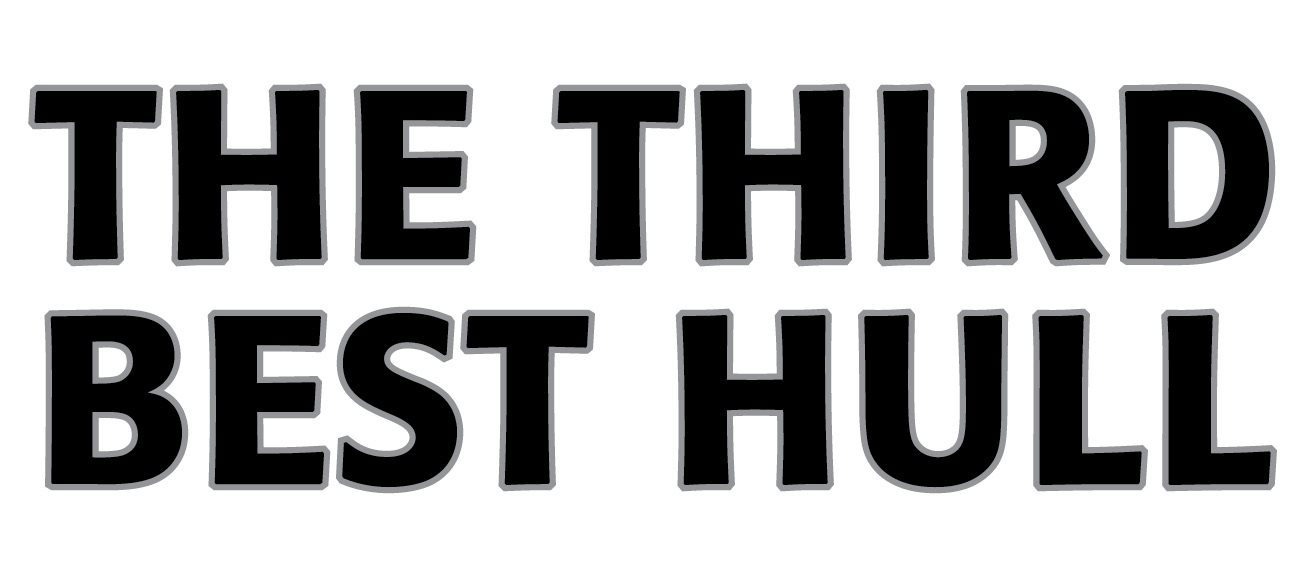I Should Have Been Fourth But They
Wouldnt Let My Sister Maxine Play
DENNIS HULL
WITH ROBERT THOMPSON
ECW PRESS
FOREWORD
by Bobby Hull
ITS 1964, AND TRAINING CAMP for the Chicago Blackhawks has just opened. Im skating around for a warm-up before our first session began when a black missile, known as a hockey puck, rockets off the glass and careens into the seats with a crash. I turn to see a kid with a mischievous grin. It is my younger brother, Dennis, whom I hardly know.
There is a six-year age difference between Dennis and me. When I left home to embark upon my Junior hockey career, he was a snotty-nosed kid of eight. Four years later I turned pro and went my own way, further separating us.
Our dad kept me up to date on Denniss hockey career as he followed me to St. Catharines where I had played for two years. At that time he had no use for school, and I heard he spent more time as a truant than as a student. But on the ice he was a big, raw, and gangly kid who could shoot the puck a hundred miles an hour.
I vowed I would not try to run his career or private life, but kept a close and wary eye on him. When he would come to me for advice, I knew exactly what he needed. Because his name was Hull, the Chicago Blackhawks expected him to play like his big brother, and at times the fans were cruel to him for our differences. But the players knew how valuable Dennis was as a great defensive player and on the road where he was our most consistent winger a -goal scorer playing the same position I did, despite the fact I played minutes or more a game. He had some pretty great stats.
We began to spend more time together socially, and I found I had a great kid as a brother reliable, caring, and very witty. After Dennis retired, a thirst for knowledge led him back to school. He graduated from Brock University with a teaching degree and a major in history, becoming the only one of brothers and sisters to wear the mortarboard. His degree provided him with the tools to teach at the respected Ridley College in St. Catharines. From there he was lured to Chicago, where he became Athletic Director at one of the most prestigious technical institutions in the U.S.
A terrific father to his two great kids, John and Martha, and a wonderful husband to Janet, life after hockey flourished for Dennis Hull. He embarked on a speaking career and has blossomed into the greatest after-dinner speaker and master of ceremonies I have ever heard.
Quite a success story: small-town boy makes his dream come true to play in the NHL, graduates from university, teaches at two institutions of note, and becomes one of the most sought-after entertainers in North America!
And one more thing, folks Im very proud to be Dennis Hulls older brother! Love ya, pal!
This book is dedicated to Billy Reay.
INTRODUCTION
I FOUND THIS BOOK most interesting and entertaining, and a true picture of a player I admired so much. Fortunately, my wife Clare and I knew the whole Hull family Mr. and Mrs. Hull and Denniss brothers and sisters. Because Clare and I were both from families of eight, we admired the Hull family because of the thoughtful and generous way they were to one another (a gift that many families could use today). I was fortunate to have the great Golden Jet, Denniss brother Bobby Hull, play for me. Bobby was the most flamboyant and charismatic player to ever play in the NHL , so when Dennis came along I knew that he would suffer a comparison with Bobby, which he did with the fans in Chicago. Fans are sometimes cruel, but I dont think the fans in Chicago really hated him. They are the best fans in the world.
For a time, Dennis was his own worst enemy. He played great on the road and would stumble over the blue line at home in the stadium. I loved Dennis and felt for him, so much so that I called him into my office and said to him, Dennis, you are going to be here in Chicago as long as I am, so go out there, relax, and play your game. He certainly did that, and worked hard to become a great left winger. One thing you can say about Dennis: he was a grumpy guy in the morning, but an absolute joy to be with in the evening.
BILLY REAY ( 1918 2004 ),
former coach of the Chicago Blackhawks
ONE
Reaching for the Summit
SOMETIMES I WONDER how I ended up on the ice in Moscow, playing in the most important game in hockey history. I wasnt supposed to be there it was my brother Bobby who was expected to lead the charge against the Soviets in 1972 . But he had chosen to sign with the WHA and wasnt allowed to participate, which left me playing left wing with some of the biggest names in hockey in the most important game ever played. I never considered myself a star, and certainly wasnt in the same league as Stan Mikita, the Blackhawks legendary centre. But Mikita, who was also on the team, hadnt clicked with the style of play coach Harry Sinden was implementing, so there I was on the ice while Stan watched the game from a bar in Czechoslovakia. The series had gone through its distinctive highs and lows, but by the eighth and final game, I knew we could win. The team, which was pared down from its initial players to a more consistent lineup numbering around , was playing together as a group. We were united, though things hadnt exactly been smooth.
Before the final game there was already a controversy. Each team had the opportunity to pick the officials for certain games, and in the final it was our choice. The Soviet officials told us the ref wed picked was sick and that we were going to get Josef Kompalla, a West German referee who had been brutal in the sixth game.
But the team received a boost the day of the game when a telegram, several inches thick, arrived from Canada. It just kept rolling out. Up until that point, we had no sense of our immense Canadian support. The team, after all, had been booed by our own fans following the loss of Game Four in Vancouver. Besides, all we had was Russian television, which seemed to focus on the exploits of Lenin. We knew the games were being televised, but we didnt know the impact they were having in Canada.
In fact, Canada seemed distant when we were in Russia. Moscow itself was the very definition of a culture clash. The first day we were in Moscow we walked into the Luzhniki Ice Palace, where the Summit Series games were played. There were still construction workers finishing the arena. In the stands a welder was working on something, and I decided to walk over to ask what he was doing. When the shield was flipped up, I realized the welder was a woman. I remember thinking that it was the first time Id ever seen a female welder.
Likewise, when wed go into the dressing room and have a shower, there was a lady who stood nearby and handed out towels. Handing towels to naked hockey players wasnt a big deal to her, as she was obviously in her late sixties or early seventies, but it was really strange to us.
I always dressed beside Pit Martin and Jimmy Pappin before Blackhawks games. As I got ready for the final, I found myself dressing beside Rod Gilbert and Jean Ratelle, who were my linemates for the final few games. I felt relaxed. I knew I was playing with two great players and we were scoring some goals. On top of that, we felt like a team. However, with the controversy involving the referee, it was clear that the ball was in the Russians court. At the start of the game, our line assisted on a couple of goals in the first and second periods, but the team found itself down - heading into the third. The Canadian team had been accused of playing dirty, but in this case the officiating was a problem from the start. Early in the first period, J.P. Paris received a penalty without doing anything to merit one.

